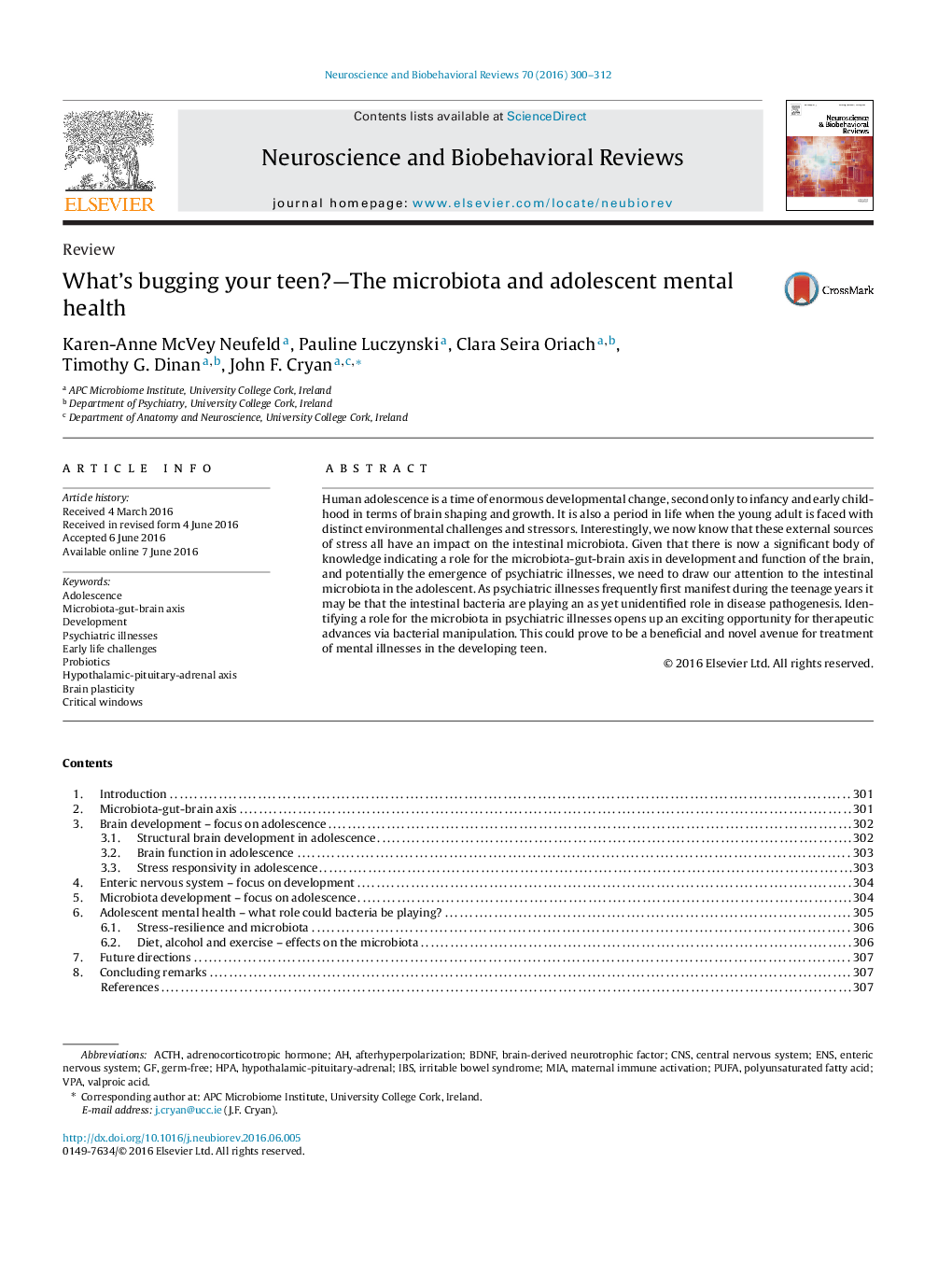| Article ID | Journal | Published Year | Pages | File Type |
|---|---|---|---|---|
| 5043606 | Neuroscience & Biobehavioral Reviews | 2016 | 13 Pages |
â¢Adolescence is a critical period of brain development.â¢Adolescence marks a time when many psychiatric disorders first manifest.â¢Gut microbiota undergoes a shift in structure and balance during adolescence.â¢Gut bacteria can influence the brain via the microbiota-gut-brain axis.â¢Changes to the microbiota may contribute to pathogenesis of psychiatric illness.
Human adolescence is a time of enormous developmental change, second only to infancy and early childhood in terms of brain shaping and growth. It is also a period in life when the young adult is faced with distinct environmental challenges and stressors. Interestingly, we now know that these external sources of stress all have an impact on the intestinal microbiota. Given that there is now a significant body of knowledge indicating a role for the microbiota-gut-brain axis in development and function of the brain, and potentially the emergence of psychiatric illnesses, we need to draw our attention to the intestinal microbiota in the adolescent. As psychiatric illnesses frequently first manifest during the teenage years it may be that the intestinal bacteria are playing an as yet unidentified role in disease pathogenesis. Identifying a role for the microbiota in psychiatric illnesses opens up an exciting opportunity for therapeutic advances via bacterial manipulation. This could prove to be a beneficial and novel avenue for treatment of mental illnesses in the developing teen.
